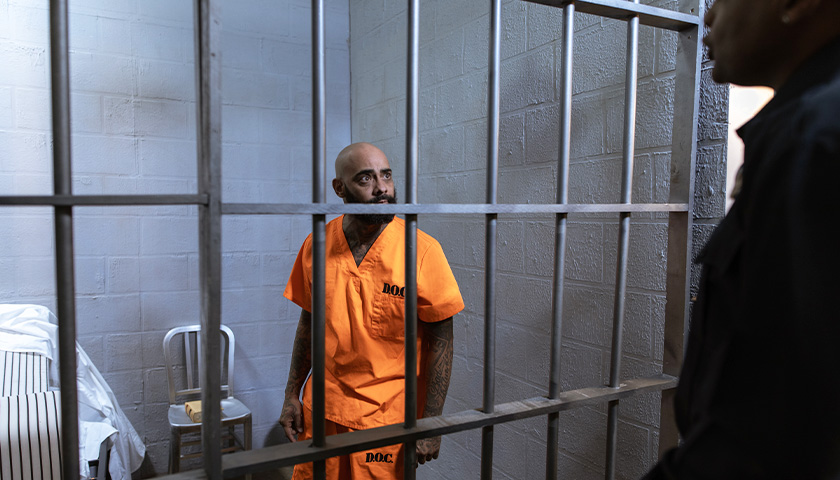After two Pennsylvania lawmakers last week called for cancelling upcoming conservative appearances at the University of Pittsburgh, a politically diverse array of voices are responding in favor of free speech.
State Representatives Jessica Benham (D-Carrick) and Malcolm Kenyatta (D-Philadelphia), who co-chair the State House LGBTQ+ Equality Caucus, denounced the state-related university for permitting the presence of speakers who oppose liberal views of transgenderism. The guests they find objectionable include Cabot Phillips, senior editor of The Daily Wire news organization, who is scheduled to speak this Friday; Riley Gaines, a former college swimmer and critic of biological males competing in women’s sports, who will appear on March 27; and Michael Knowles, a Daily Wire commentator, who will debate transgender economist Deirdre McCloskey on April 18. Student-led associations are sponsoring all speakers.
The offended legislators posited that transgender students “are feeling endangered” by contrary opinions and that those espousing those opinions don’t enjoy legal free-speech protections.
“I am shocked, appalled and outraged that an institution as prestigious as the University of Pittsburgh is allowing these events to occur on their property and bolstering these hateful individuals,” Benham, who herself holds a master of bioethics from Pitt, said in a statement. “This is not a free speech issue. Hate speech is not protected speech.”
The First Amendment to the U.S. Constitution neither makes an exception for nor defines a category of “hate speech.” The resemblant Article I Section 7 of the Pennsylvania Constitution also mentions no such notion, stipulating, “The free communication of thoughts and opinions is one of the invaluable rights of man, and every citizen may freely speak, write and print on any subject, being responsible for the abuse of that liberty.”
Even left-wing legal experts dispute Benham (pictured above, right) and Kenyatta (pictured above, left)’s selective understanding of free expression. American Civil Liberties Union of Pennsylvania deputy legal director Sara Rose said in an emailed statement that Pitt’s status as a taxpayer-funded institution requires its administrators to safeguard constitutionally guaranteed speech rights.
“The ACLU is committed to ensuring that transgender people can live in our society with dignity, respect, and peace,” Rose said. “As a public university, Pitt is also subject to the First Amendment and can’t discriminate against speakers, even if the expression is despicable. If the university tried to cancel these events, they’d face legal liability.”
Rose suggested that campus progressives respond to what they regard as bad ideas with their own countervailing perspective.
“Of course, those free speech rights also apply to everyone who rejects the views of the transphobic speakers,” she said. “The best way to counter their views is to organize, show up, and speak out.”
As recently as 2022, Pitt published its promise to foster the free exchange of ideas.
The school’s affirmation on the subject recognizes students’ rights to “engage in discussion, to make inquiries, to exchange thought and opinion, to publish and exchange findings and recommendations, to speak, write, or print freely on any subject, and to sponsor speakers of their choice, in accordance with the guarantees of our Federal and State Constitutions, subject only to the right of the University to make reasonable rules and regulations related thereto.”
Ignoring these guarantees, far-left Pitt students are circulating an online petition urging cancellation of the Phillips, Gaines, and Knowles appearances. Signers, many of whom do not attend the university, number nearly 11,000 at this writing.
Conservatives and classical liberals have condemned the push to cancel the three right-leaning speakers. The Pitt College Republicans, who are sponsoring the Knowles-McCloskey debate, jointly regretted that “there will always be people who don’t believe in free speech that want to shut down their opposition, especially when they’re speaking such powerful and important truths.”
Americans for Prosperity-Pennsylvania deputy state director Emily Greene, herself a Pitt alumnus, issued a statement calling the push by Benham and Kenyatta to suppress speech at a state-funded school a “chilling” and unconstitutional move.
“University campuses are the precise venue where controversial discussions should be happening,” she said. “While the scheduled topics certainly have the potential to be offensive to members of the community, such discussions are the very definition of ‘free speech.’ Far from encouraging censorship on campus, the Pennsylvania General Assembly should be taking steps to protect free speech on campus and throughout the Keystone State.”
Echoing Greene, State Representatives Jill Cooper (R-Export) and Marla Brown (R-New Castle) proclaimed their dismay at their Democratic colleagues’ attempt to “silence those with different opinions.”
So far, the events’ opponents are having no luck getting university administrators to intervene, despite those administrators’ avowed political correctness.
A declaration from the school characterized the upcoming events as “toxic and hurtful for many people in our University community.” Nonetheless, Pitt determined that “student organizations are permitted to invite speakers – including highly provocative ones – to campus without University administration deciding what is acceptable and what is not.”
– – –
Bradley Vasoli is managing editor of The Pennsylvania Daily Star. Follow Brad on Twitter at @BVasoli. Email tips to [email protected].
Photo “Jessica Benham” by Rep. Jessica Benham. Photo “Malcolm Kenyatta” by Rep. Malcolm Kenyatta. Background Photo “University of Pittsburgh” by University of Pittsburgh.





